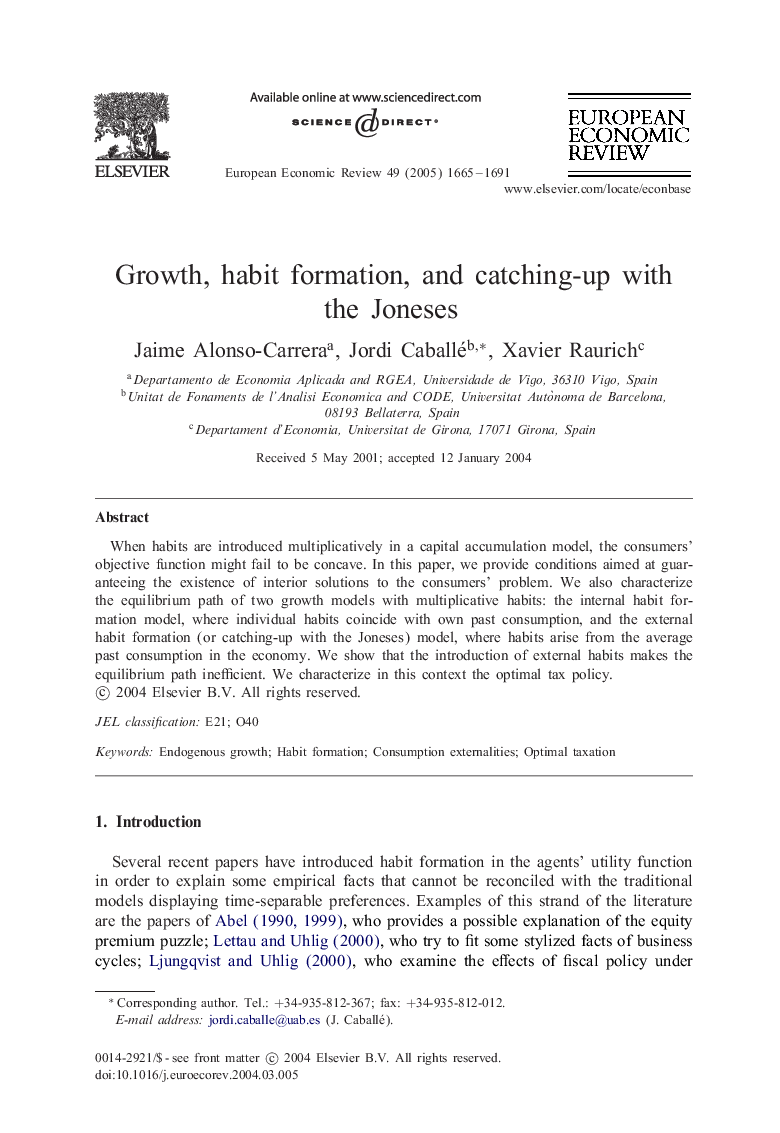| Article ID | Journal | Published Year | Pages | File Type |
|---|---|---|---|---|
| 9551103 | European Economic Review | 2005 | 27 Pages |
Abstract
When habits are introduced multiplicatively in a capital accumulation model, the consumers' objective function might fail to be concave. In this paper, we provide conditions aimed at guaranteeing the existence of interior solutions to the consumers' problem. We also characterize the equilibrium path of two growth models with multiplicative habits: the internal habit formation model, where individual habits coincide with own past consumption, and the external habit formation (or catching-up with the Joneses) model, where habits arise from the average past consumption in the economy. We show that the introduction of external habits makes the equilibrium path inefficient. We characterize in this context the optimal tax policy.
Related Topics
Social Sciences and Humanities
Economics, Econometrics and Finance
Economics and Econometrics
Authors
Jaime Alonso-Carrera, Jordi Caballé, Xavier Raurich,
